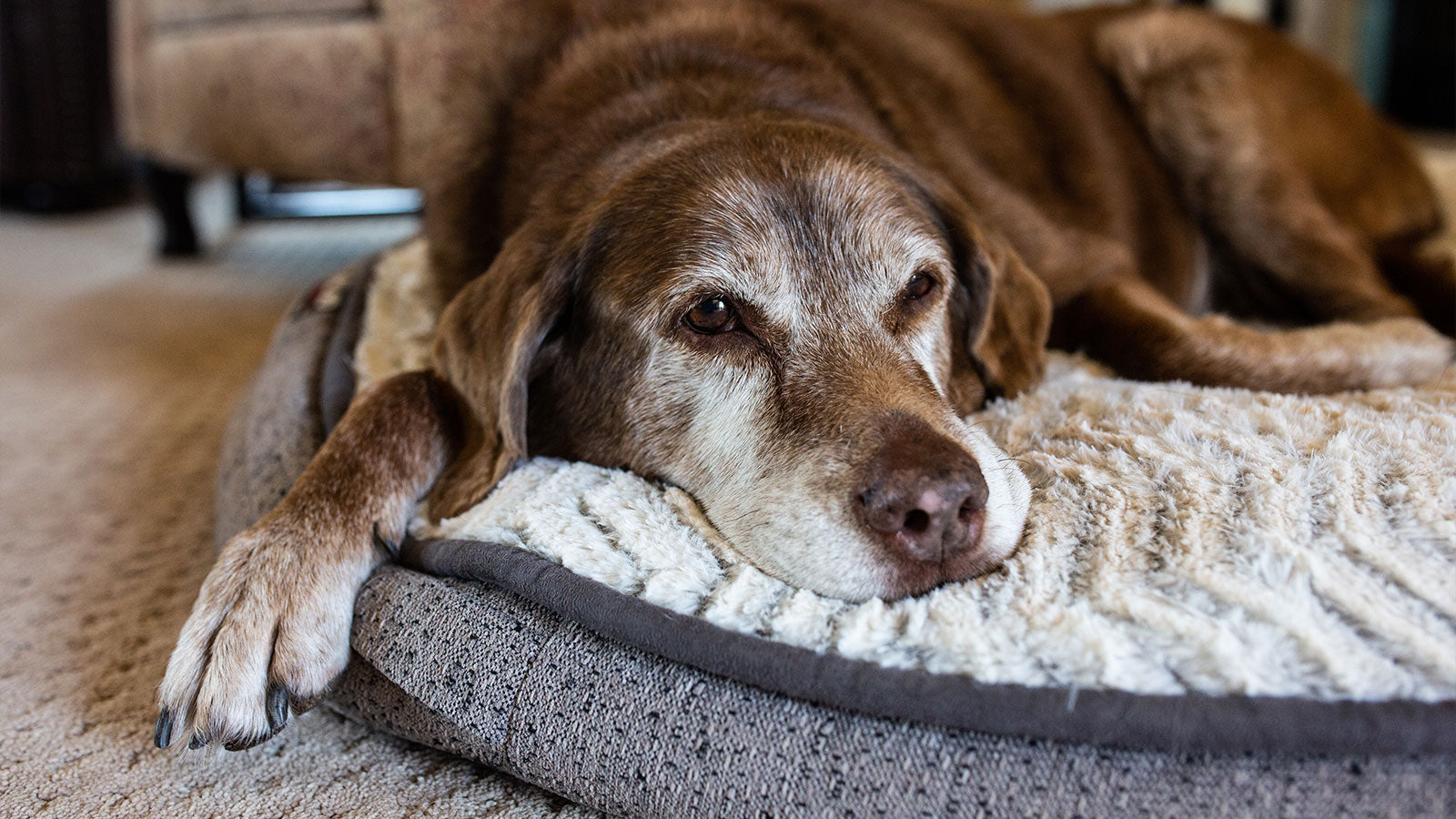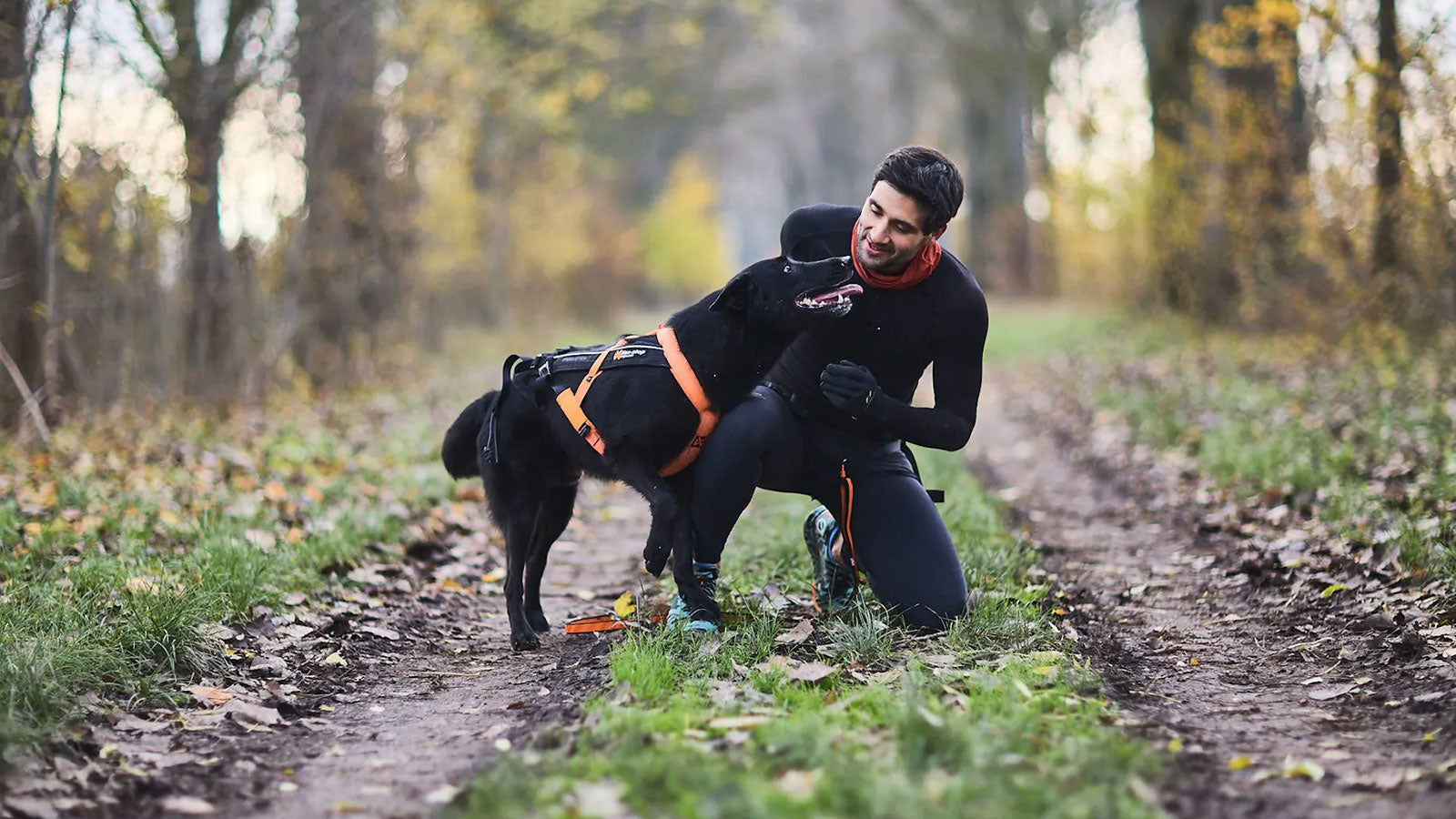Colitis in dogs is a common condition that involves inflammation of the large intestine or colon. This inflammation disrupts the colon’s ability to absorb water and process waste, leading to symptoms like diarrhea.
While acute colitis is a short-term issue, chronic colitis can be a long-lasting problem that requires thorough management. This article explores the different types of colitis in dogs, their causes, symptoms, and effective treatment options to help your dog recover and maintain good digestive health.
What is Colitis in Dogs?
Colitis in dogs refers to the inflammation of the large intestine, also known as the colon. The colon plays a crucial role in absorbing water and storing waste before it's eliminated from the body. When the colon becomes inflamed, it disrupts these functions, leading to loose stools and diarrhea. The inflammation can be acute, lasting a few days, or chronic, persisting for weeks or longer. Understanding the nature of colitis is key to effective treatment and prevention.
Acute vs. Chronic Colitis
Acute colitis is typically a short-term issue, often resolving within a couple of days. It’s usually triggered by sudden changes in diet, stress, or minor infections. Dogs with acute colitis may experience soft, watery stools, sometimes with blood or mucus, and an urgent need to defecate frequently.
Chronic colitis, on the other hand, is a long-lasting condition that may persist for weeks or even months. It’s often associated with underlying health issues such as food sensitivities, infections, or inflammatory bowel disease. Unlike acute colitis, chronic colitis requires a more comprehensive approach to treatment, addressing the root causes to prevent recurring episodes.
Specific Types of Chronic Colitis
Some dogs suffer from unique forms of chronic colitis, including granulomatous colitis and histiocytic ulcerative colitis. Granulomatous colitis primarily affects breeds like Boxers, French Bulldogs, and some Mastiffs, and is linked to an aggressive E. coli infection that leads to thickening of the colon walls. Histiocytic ulcerative colitis, often seen in Boxers, is a severe, lifelong condition that may increase the risk of bowel cancer. It involves inflammation and ulcers in the colon, causing significant discomfort and digestive issues.
Causes of Colitis in Dogs
Colitis can be triggered by a variety of factors, including:
- Dietary changes, such as sudden introduction of new foods or excessive treats
- Stress from loud noises, travel, or changes in environment
- Infections from bacteria, parasites, or fungi
- Food sensitivities or allergies
- Inflammatory bowel disease (IBD) or other gastrointestinal disorders
- Ingestion of foreign materials, such as toys or clothing
- Cancer or tumors in the digestive tract
Understanding these causes is essential for preventing future occurrences of colitis in dogs.
Signs and Symptoms of Colitis
The most common sign of colitis in dogs is sudden, intense diarrhea. Other symptoms may include:
- Loose, mucous-covered stools
- Frequent, urgent need to defecate
- Straining during bowel movements with low stool volume
- Presence of blood in the stool
- Increased gas and abdominal discomfort
These symptoms can vary depending on the severity and type of colitis, so it’s important to monitor your dog’s condition closely.
Duration and Recovery from Colitis
Acute colitis usually resolves within a few days, especially if it’s stress-related or triggered by dietary indiscretion. However, chronic colitis may take weeks or even months to fully resolve, particularly if it’s linked to underlying health issues. Prompt treatment and dietary management can significantly reduce the duration of colitis and improve your dog’s overall health.
Preventing Colitis in Dogs
Preventing colitis involves maintaining your dog’s overall health through proper diet, stress management, and regular veterinary care. Feeding a balanced, whole-food diet rich in fiber and probiotics can support a healthy gut microbiome, reducing the risk of colitis. Avoiding sudden changes in diet and minimizing exposure to stressors can also help prevent flare-ups.
Natural Treatments for Colitis
While conventional treatments for colitis often involve antibiotics and anti-inflammatory drugs, these can have side effects and may disrupt your dog’s gut health. Instead, consider these natural approaches to managing colitis:
- Fasting: Allowing your dog to fast for 24-48 hours can give the digestive tract time to rest and heal. Ensure your dog stays hydrated during this period, and gradually reintroduce a bland diet, such as bone broth or low-sodium soup, before transitioning back to regular food.
- Adding Fiber: Incorporating fiber-rich foods like pumpkin, leafy greens, and berries into your dog’s diet can help absorb excess water in the colon, slow down digestion, and promote healthy bowel movements. Fiber also helps eliminate toxins and harmful bacteria from the digestive tract.
- Probiotics and Prebiotics: Supplementing your dog’s diet with probiotics and prebiotics can help restore the balance of beneficial bacteria in the gut, promoting overall digestive health and reducing the risk of colitis.
- Herbal Remedies: Certain herbs, such as calendula, marshmallow root, and chamomile, have soothing properties that can help reduce inflammation and heal the digestive tract. These herbs can be given as supplements or added to your dog’s food.
- Natural Antibiotics: Natural antibiotics like oil of oregano, olive leaf, and turmeric can help fight infections without harming the gut microbiome. These remedies can be used in conjunction with other treatments to support your dog’s recovery from colitis.
Conclusion
Colitis in dogs can be a distressing condition, but with the right knowledge and natural treatments, you can help your dog recover and prevent future episodes. By maintaining a healthy diet, managing stress, and using natural remedies, you can support your dog’s overall well-being and keep colitis at bay.






Share:
Understanding Dog Diarrhea: Causes and Natural Remedies
Cataracts in Dogs: Causes, Prevention, and Natural Management